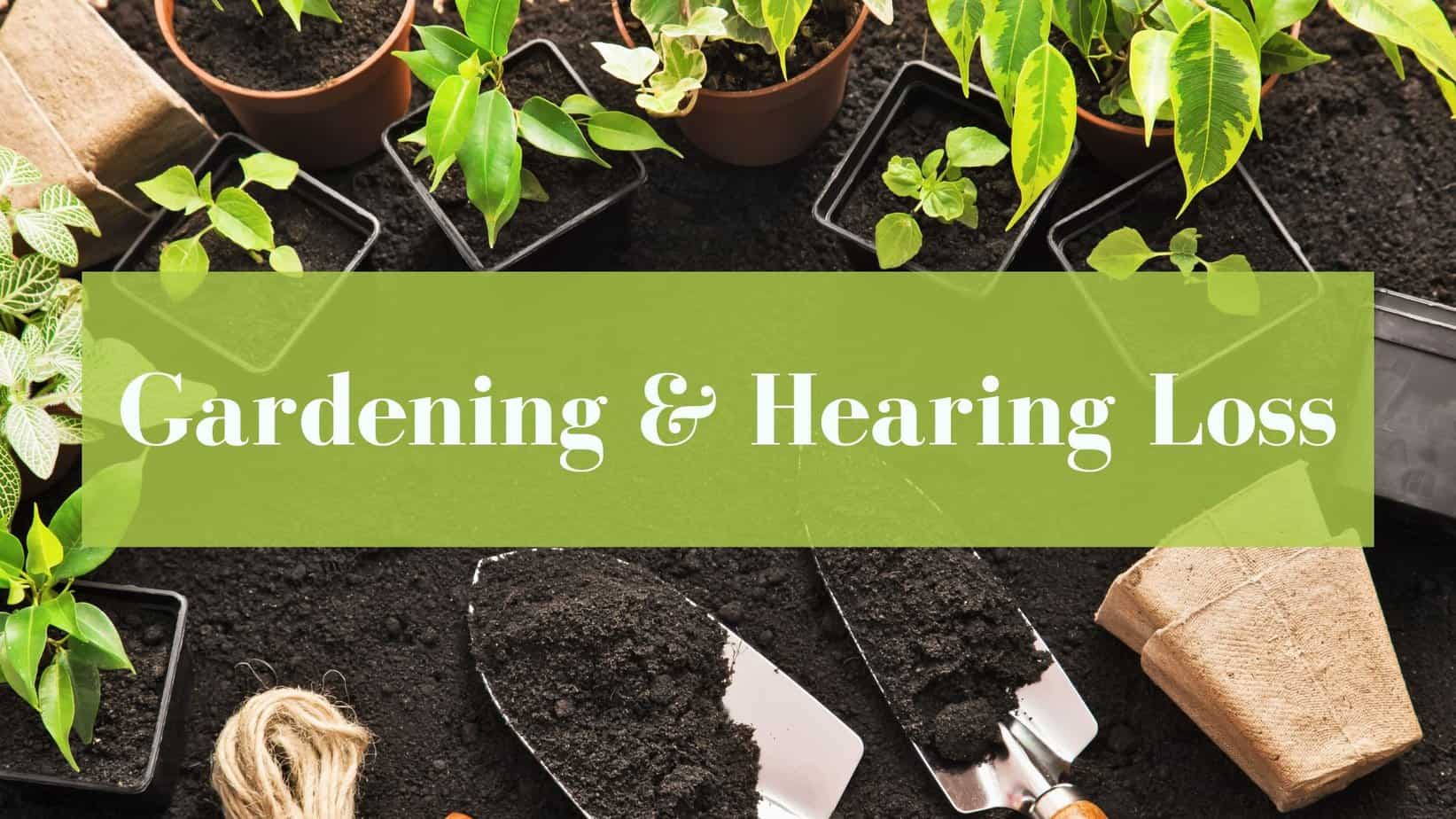Gardening has been a treasured pastime for generations. Whether your goal is to garden for food, beauty, or both, you’ll find the activity itself to be engaging, centering, and healthy in a way that few activities can boast.
Most importantly, if you think that you or someone you love has hearing loss, make an appointment for a hearing test today and find out if hearing aids are a good option. Hearing aids are the best way to ensure that life can be enjoyed to the fullest even when hearing loss has become an issue. People say they’re happy they got hearing aids at a rate of about 95%, when asked after wearing them for one year.
If you have been living with hearing loss for a while and are new to hearing aids, gardening can be an excellent activity that will have many benefits, including helping you adjust to your new hearing aids. Whether you’ve been gardening for years or are only thinking about getting started, consider the advantages that gardening has for those who live with hearing loss.
A Year-Round Pastime
Gardening is very flexible because it can be conducted inside or outside, and can involve different types of plants at different times of year. You can start your own annuals indoors and move them outside when the weather is right. You can garden vegetables in the summer and into the fall, and focus on different plants or bring some indoors for the winter. You can also make a habit of pickling cucumbers, beets, and other spoils from your garden to eat throughout the winter or give as gifts. It really can be whatever you want it to be, and can take up as much space and time as you desire. For those who are in a wheelchair or have physical issues with bending over, raised beds will bring the plants up to your level for comfortable work.
Helps Manage Sensory Health
A study by Brigham and Women’s Hospital found that those who strictly followed an anti-inflammatory diet, such as the Alternated Mediterranean Diet (AMED) or Dietary Approaches to Stop Hypertension (DASH), were significantly less likely to have measurable hearing loss over a 4-year period. By growing vegetables that are indicated in these diets, you’ll be able to prevent further hearing loss while also enjoying a delicious “farm-to-table” treat from your own backyard! Make sure to plant plenty of tomatoes, green leafy vegetables, strawberries and blueberries.
If tinnitus is an issue for you, you may find that your stress melts away while you garden, and some of your tinnitus may go with it. Gardening may also help you to understand your tinnitus as less of a foe, which is helpful in dealing with the frustration that can come with long-term tinnitus. While you’re at it, grow some beans, lentils, spinach and broccoli to get more zinc and vitamin B, which may help with tinnitus as well.
Good for Physical Health
Gardening is a great opportunity for relatively low-impact exercise. Moving bags of soil, digging holes and trenches, planting and covering seeds, using water cans, and weeding are all great ways to move your body and help build muscle tone. You’ll keep your balance and motor skills in good shape, and help keep your blood sugar levels low. Hearing the sounds related to your own movement is an important part of getting adjusted to wearing hearing aids, and the sounds of gardening can be some of the most pleasant.
Promotes Mental Well-Being and Socialization
Recent research has found that even looking at a wall that is painted green, or a computer screen with a green background, increases our sense of calm and contentedness. Actually, being in a plant-filled space has even stronger benefits. By working in your garden and cultivating plant life in your home, you’re increasing your happiness with every extra dab of green! There’s also evidence to suggest that gardeners are at a 36% decreased risk of dementia.
Treating Hearing Loss with Hearing Wellness Solutions
On average, people tend to get hearing aids about 7 years after they notice a hearing problem. While we hope this statistic improves, getting hearing aids later is better than not getting them at all. Many people who have waited a long time to start enjoying the benefits of hearing aids may have seen some adverse effects on relationships with friends and loved ones.
Gardening together is a great way to restore some social connections that may have gone untended while hearing loss made them more difficult. If you have experienced changes in your hearing, please contact us at Hearing Wellness Solutions to schedule a consultation!

